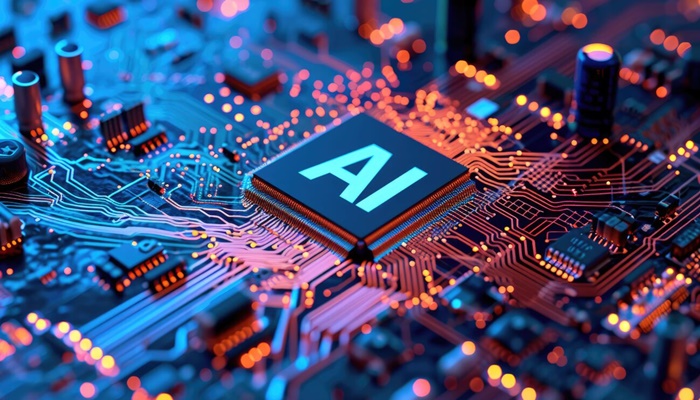In today’s dynamic workplace, the way we recognize and reward employees is undergoing a radical transformation. At the forefront of this shift is Generative AI—an innovation that brings precision, personalization, and empathy into HR processes. By analyzing large datasets and crafting tailored human-like content, Generative AI enables organizations to move beyond generic rewards and create recognition experiences that resonate with individual contributions and aspirations. The result is a more connected, motivated, and empowered workforce—and a culture that truly puts people first.
In corporate life, employees once waited ages for recognition, often feeling ignored and undervalued. Traditional systems relied on rigid annual reviews or generic bonuses, operating under a one-size-fits-all approach that rarely acknowledged individual contributions. These blanket rewards missed personal aspirations, dampening engagement and appreciation. In today’s fast-moving workplace, employees seek tailored recognition that aligns with their unique efforts and goals, pushing HR teams to rethink outdated models.
This is where Generative AI steps in with a transformative edge. By crafting human-like content and analyzing vast datasets, it replaces static and impersonal frameworks with dynamic and customized reward systems. More than just boosting efficiency, this shift fosters deeper connections, strengthens motivation, and reshapes workplace culture into one that truly values and empowers its people.
Introduction to Generative AI and its adoption in HR
Generative AI refers to advanced algorithms capable of producing content and insights based on vast datasets. It excels at tailoring experiences as its capabilities extend beyond simple automation, enabling organizations to create nuanced, context-aware responses tailored to individual circumstances. It digs into employee preferences, work patterns, and career goals to design rewards that hit the mark.
As Generative AI gains momentum in HR, rewards and recognition programs are rapidly evolving to prioritize personalization and relevance. Organizations recognizing their potential are beginning to implement technologies to enhance employee engagement through tailored rewards. According to a 2023 report by the Incentive Research Foundation, generative AI is poised to have a profound impact on employee recognition systems by enabling greater personalization and individualization of incentives. Interestingly, an Infosys study revealed these systems can even scan emails to spot gratitude, making recognition smarter and faster.
Ways in which Generative AI is impacting rewards and recognition
Personalized recognition
By helping organisations tailor rewards for individual based on their preferences, career aspirations, and performance metrics, Generative AI fosters a deeper employer-employee connection. This level of personalization makes recognition more meaningful, further encouraging employees towards better performance.
Consider an employee who consistently performs well in team collaborations but values professional growth opportunities more than monetary bonuses. Generative AI can analyze the employee’s engagement history, feedback loops, and self-assessments to recommend recognition in the form of sponsored certifications or leadership opportunities. For instance, Workhuman, a global HR technology company, has integrated AI into its “social recognition” platform to enhance employee feedback and appreciation. The AI feature, called ‘Human Intelligence,’ assists users in crafting thoughtful and emotionally resonant messages of praise among coworkers.
Real-time feedback
AI-driven systems facilitate instant recognition and feedback, ensuring employees feel valued without delays and boosting morale instantaneously. A 2023 study showed real-time recognition lifts productivity by 14%. Generative AI can suggest proactive recognition strategies. Moreover, it can automate tasks such as generating reward recommendations, managing recognition platforms, and streamlining communication, leading to a faster and more efficient implementation of reward and recognition programs.
Predictive insights
Generative AI generates raw data into actionable insights, tracking performance trends, measuring reward effectiveness, and predicting employee needs. This predictive capability allows HR teams to identify potential high performers or those in need of encouragement before issues arise. In addition, it reduces manual effort for HR teams. According to a report from 2023 BCG Analysis, AI-enhanced HR analytics improve decision-making by 30%, boosting HR productivity. This data-driven approach ensures rewards align with business goals while staying responsive to workforce shifts.
Improved fairness and equity
AI tackles human biases in recognition by grounding decisions in data-driven performance metrics instead of subjective views. It ensures equitable acknowledgement across teams. It can analyze performance data to identify areas for improvement and tailor rewards accordingly. The outcome is a system that’s fairer, faster, and less prone to human error, letting appreciation flow seamlessly to those who earn it.
Challenges and considerations
Despite its potential benefits, implementing generative AI solutions in HR comes with challenges. Data security tops the list of concerns. Therefore, organizations must ensure the protection of sensitive information against breaches. Furthermore, it is crucial to prevent biases in AI algorithms to maintain equitable recognition practices. Transparency must be prioritized through regular monitoring and audits necessary to ensure these systems operate fairly across diverse employee demographics.
Conclusion
Generative AI isn’t just changing rewards but is rather building workplaces where people thrive. The future appears promising with the continued development of technologies and innovations that further elevate the recognition experience.
For instance, AI-powered sentiment analysis tools can scan employee communication channels (like Slack or Microsoft Teams) to detect signs of disengagement or frustration. This enables HR to offer early interventions or pulse rewards when morale dips. Blockchain-integrated rewards can also introduce unmatched transparency, ensuring rewards are logged in immutable ledgers. This allows both employees and employers to track fairness and the history of recognition. Organizations have explored blockchain in workforce applications, showing the potential for secure, verifiable recognition systems.
Furthermore, hyper-personalized recognition strategies powered by generative AI can analyze workload patterns, behavioral indicators, and productivity trends to detect early signs of burnout. For example, if the system notices a consistent increase in after-hours work or a decline in collaborative activity, it could trigger alerts for HR to initiate wellness outreach or restructure workloads. Timely interventions like these help create a culture where mental and emotional health is prioritized alongside performance.
In the end, it’s all about enhancing and not overshadowing the personal touch that fuels authentic recognition. Generative AI, when used thoughtfully, doesn’t replace human appreciation but amplifies it, creating a culture of continuous acknowledgment, wellbeing, and growth.



















